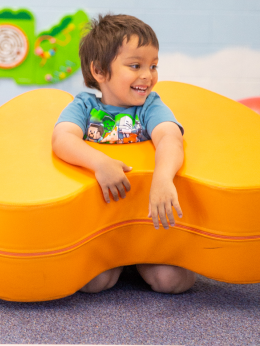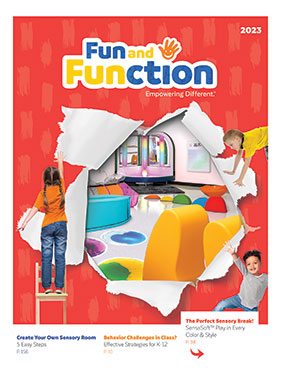Most parents are well aware of the vital role they play in fostering children's verbal development and understand the importance of teaching new words and concepts to children as they grow. The way in which we communicate with children - the words we use and the looks or actions that accompany our words - is just as vital in nurturing children's emotional development and sense of self-worth. Start monitoring your interactions and introduce changes when needed. These changes will create an atmosphere of love and respect and help your child develop the confidence he or she needs to have healthy relationships with you and with others throughout his/her life.
Below are several suggestions for communicating in positive ways with your youngsters:
1. Listen!
Give your child full attention when he or she is talking. It is difficult to do two things at once and generally, both tasks are done less optimally this way. When your child is saying something, try to stop washing dishes, reading the paper, or running the vacuum cleaner -make eye contact with your child and pay close attention. If you are busy, do not pretend to listen; rather explain to your child that you are busy now but want to talk with him as soon as you are done.2. Use "Do's" more than "Don'ts"
Try to tell your children what to do using positive phrasing (e.g., "Talk softly when the baby is sleeping," "Use your spoon when you eat") rather than using negative words which convey criticism (e.g., "Don't yell when the baby is asleep," "Don't eat with your fingers").3. Use "I-messages"
"I-messages" tell children how their behavior makes the adult feel and gives the child a sense of responsibility for changing his behavior. For example, "I get really upset when I see all your toys on the floor" is far more effective than "Look at the mess you made!"4. Get your child's attention before speaking
Call your child's name and wait until he stops his activity and looks at you before speaking to him - children usually concentrate on only one thing at a time!5. Use words that invite more words!
When your child is talking, use simple words that convey your interest in what he or she is saying, such as "Oh my...", "Tell me more," "Really?" or "No kidding". Repeating key phrases is another effective way of inviting further elaboration (e.g., "...You had pizza at the party!" or "You lost your doll...").Using the right words and tone will infuse love and warmth in your interactions with your child and will help your child learn not only to use words but to communicate in a mature and respectful way.
Do you have any strategies for fostering communication with your kiddos? We love to share your ideas! Get in touch with us at social@funandfunction.com or on our social media pages!


















Comments